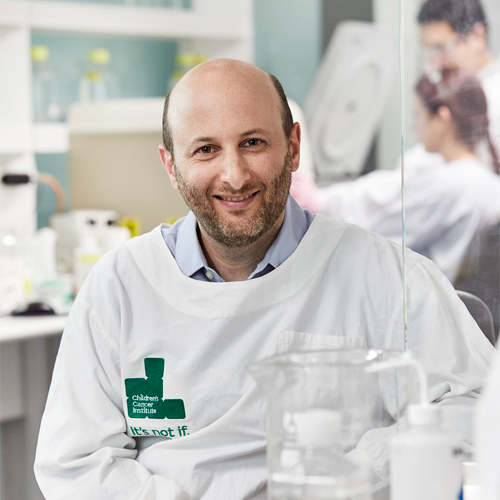Research And Grants

Sydney Children's Hospital - $100,000
Dr. David Ziegler
$100,000.00
January 2013
DIPG
Research of treatments for Diffuse Intrinsic Pontine Glioma (DIPG)
Diffuse Intrinsic Pontine Gliomas are the most aggressive of all childhood malignancies. There are no effective treatments and current therapeutic strategies are palliative only. Almost all children experience rapid tumour progression resulting in inevitable death from this devastating disease. Novel and innovative treatment approaches are urgently needed. Our access to the first DIPG neurosphere cultures has led to exciting preliminary evidence to suggest that targeting glucose metabolism in DIPG cells is a rational and potentially effective therapeutic approach. We have tested the novel compound PENAO, developed by AI Hogg, that specifically inhibits aerobic glycolysis by targeting adenine nucleotide translocase (ANT). We have found that PENAO has a dramatic anti-tumour effect in vitro against DIPG neurospheres. Moreover a high throughput drug screen has revealed that cardiac glycosides, that are also known to inhibit glycolysis, also have a profound anti-tumour effect in DIPG cells, suggesting a role for combination therapy. We seek here to build upon these initial findings, to develop the preclinical evidence required to urgently translate these novel discoveries to clinical trial to directly benefit children with DIPG.
Our primary hypotheses are that DIPG cells are dependent on aerobic glycolysis for survival and progression and that targeting glucose metabolism in DIPG cells represents potentially rational and effective therapeutic strategy. Our secondary hypotheses are that the novel, small molecule ANT inhibitor, PENAO can target glucose metabolism in DIPG cells, induce apoptosis and result in an anti-tumour effect both in vitro and in vivo. Further, we hypothesise that cardiac glycosides, by simultaneously targeting aerobic glycolysis, via reduction in the activity of the key glycolytic enzyme phosphofructokinase, will enhance the efficacy of PENAO in a synergistic manner.
Our aims are to extensively test the activity of PENAO to determine its mechanism of action and establish its efficacy as a potential novel therapeutic strategy for this intractable disease. We will initially assess he activity of PENAO on DIPG stem cells and compare the activity with normal human brain embryonic stem cells to verify the selectivity of the anti-tumour effect. We will next perform a series of experiments to measure the effect of PENAO on lactic acid production, metabolic pathway metabolites, mitochondrial permeabilisation, superoxide production, and apoptosis to clearly delineate the mechanism of action of the compound. The reality is, that given the resistance of DIPG to all known cytotoxic and targeted therapies, any novel targeted therapy is unlikely to be effective as a single agent. We will therefore build on our results of our high throughput screen to test PENAO in combination with cardiac glycosides to determine both the mechanism of action and the efficacy of the combination strategy. Finally we will test the PENAO both as a single agent and in combination with cardiac glycosides in two in vivo models of DIPG. In doing so, we aim to develop the quantum of preclinical data required to rapidly translate this therapy to the clinic.
Our team has all the skills necessary to successfully conduct the proposed research program. Dr Ziegler has preclinical expertise in paediatric malignant brain tumours and his clinical focus on early phase clinical trials will facilitate translation of positive results to the bedside. Dr Maria Tsoli is a post-doctoral researcher with particular expertise in the cancer cell metabolics, has conducted the experiments to provide the preliminary data described below, and has spent the last year optimising DIPG neurosphere assays for high throughput analysis. Our access to Prof Hogg’s novel ANT inhibitor and his expertise in glucose metabolism offers a unique opportunity to assess this novel therapy. Drs Monje and Becher will continue to assist in providing DIPG cell cultures, and two in vivo models for performing the in vivo validations. The support of Prof Haber and Norris at the CCIA provides an invaluable environment to ensure the success of this novel research program, and with the ultimate goal of improving outcomes for children diagnosed with DIPG.

